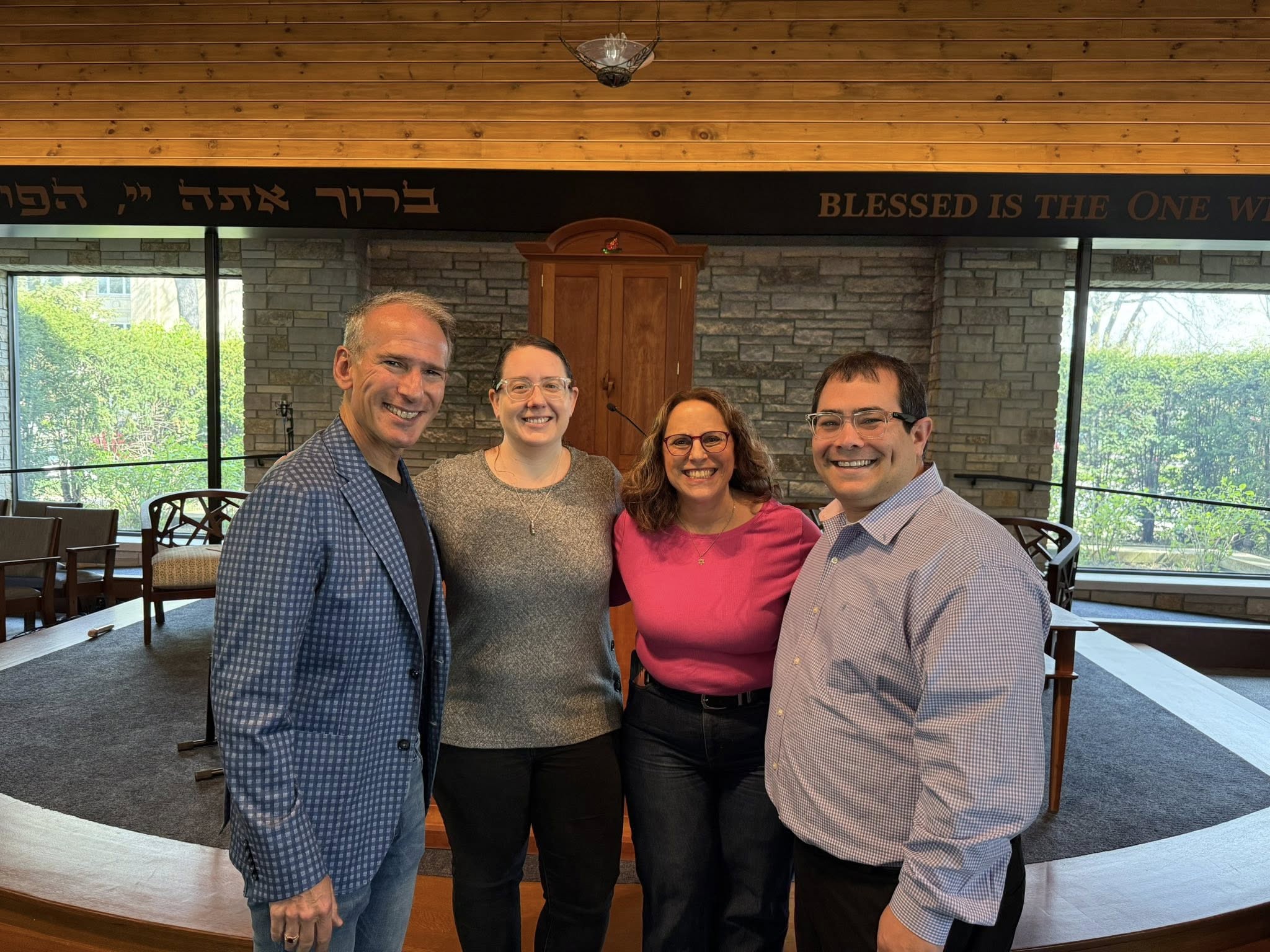Today is Thursday, though some of you may read this on Friday, and while nearly two weeks will have passed since some of these events, I find myself still processing and appreciating a truly meaningful—and wonderfully packed—week. Between the final day of J-Quest classes and our Rick Recht family concert, being installed by Rabbi Cohen as the President of ChARJE (the Chicago Association of Reform Jewish Educators), traveling to Kansas for my mom’s retirement celebration after 22 years as head of the Hebrew department at the University of Kansas, and celebrating Mother’s Day—it was a week full of legacy, community, and heart.
This week’s Torah portion, Emor, begins with the words: “Emor el B’nei Yisrael”—“Speak to the children of Israel.” This phrase appears multiple times throughout the parashah. It’s more than just a call to teach—it’s a directive to communicate in a way that ensures our values and traditions are fully understood and carried forward. Emor challenges us to think not just about what we say, but how we say it, and whether our words—and actions—plant the seeds of legacy for future generations.
Let’s look at how that legacy came to life over the past week.
There’s an electric energy when families enter Temple Jeremiah for the first day of J-Quest, and there’s a certain tenderness and nostalgia when the year comes to a close. That energy was on full display during our end-of-year Rick Recht concert. Students who may have started the year feeling unsure or shy—some barely knowing any Hebrew—stood on the bimah singing, smiling, and creating lifelong Jewish memories (even if some of those smiles were accompanied by giggles of embarrassment). These are the moments that shape Jewish identity. It’s a testament to our incredible teachers, staff, and of course, to you—our families—for showing up week after week. Emor reminds us: when we speak and act with intention, we build something lasting.
On Wednesday, I was honored to be installed as President of ChARJE, surrounded by some of our Temple Jeremiah clergy and staff, as well as incredible colleagues from across our community. Stepping into this role, I couldn’t help but think of Dr. Anne Lidsky, a former ChARJE president and someone I deeply admire. As Emor teaches about priestly leadership and communal responsibility, I reflected on how Anne has modeled those values for decades. While our program may look a bit different today, the mission is the same: to build community, develop mensches, and lead with care.
Later that same day, I hopped on a plane to Kansas, where I joined my family to celebrate my mom’s retirement. For more than two decades, my mom—Shelley Rissien—has been a beloved Hebrew professor and Jewish educator. But her impact extends far beyond the classroom. She served as the Hebrew School Director at my childhood synagogue, taught me at the Hyman Brand Hebrew Academy, and was even my college Hebrew instructor (not sure it was the best idea to take my own mom’s class at 8 a.m. on Friday mornings!). She’s been the invisible thread weaving Judaism into my life from the very beginning.
At her celebration, more than 100 students and alumni came through the KU Jewish Studies office to thank her. Just as she began to share a few words, six of my former day school teachers walked in to surprise her. Talk about full circle. One quick side note: one of those teachers was Mrs. Krashin—grandmother to Maddie and Drake Krashin, Temple Jeremiah members and participants in our J-Quest program. That is full circle!
The love, stories, and gratitude filled the room—and our hearts. It was a living legacy in every sense.
Saturday brought yet another moment of Emor-inspired reflection, as I attended the Bat Mitzvah of a rabbi’s friend’s daughter—watching the transmission of tradition unfold in real time. And Sunday was Mother’s Day, where I got to witness firsthand how much our own two-year-old has already learned from his incredible mom.
It was… a lot. In the best possible way.
And now we look ahead to this Shabbat, when we’ll celebrate our Confirmation students—a ceremony that’s not just a capstone of Jewish learning, but a celebration of Jewish living. If you asked them to recite every prayer or explain every mitzvah, they might pause. But ask them to share their favorite Jewish moments? They’ll talk about singing with Rick Recht, seeing their teachers show up at life events, feeling joy in a sanctuary full of music and memories.
This is the essence of Emor. To speak—not just with our mouths, but with our hearts and actions. To transmit Jewish life in ways that are felt deeply, remembered vividly, and passed down with pride.
Shabbat Shalom,
Matt Rissien

